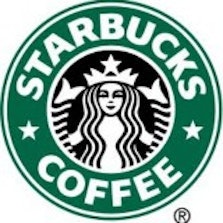About a year ago, former Secretary of Defense Robert Gates joined the Board of Directors of Starbucks Corporation (NASDAQ:SBUX). Now a Form 4 filed with the SEC has disclosed that Gates directly purchased 3,300 shares of the restaurant’s stock on May 1st at an average price of $60.49 per share, giving him nearly 10,000 shares of the company. Studies show that stocks bought by insiders exhibit a small outperformance effect (read our analysis of studies on insider trading); our explanation for this is that company insiders should instead choose to diversify their wealth except in cases when they are particularly confident in the stock’s prospects.
The second quarter of Starbucks Corporation (NASDAQ:SBUX)’s fiscal year ended in March, with the company reporting an 11% increase in revenue compared to the same period in the previous fiscal year. Slightly more than half of this sales growth came from improvements in comp sales, which in turn was based on a larger number of customers with only a small contribution on the ticket front. The business also increased its margins and as a result earnings were up by 26%.

We track quarterly 13F filings from hedge funds and other notable investors. The information included in 13Fs is useful in developing investing strategies- for example, we have found that the most popular small cap stocks among hedge funds earn an average excess return of 18 percentage points per year (learn more about our small cap strategy)– and we can also track interest in individual stocks. Billionaire Steve Cohen’s SAC Capital Advisors more than doubled its holdings of Starbucks during the fourth quarter of 2012, to a total of 3.5 million shares (see Cohen’s stock picks). Renaissance Technologies, managed by billionaire Jim Simons, initiated a position of 1.4 million shares (find Renaissance’s favorite stocks).
Starbucks can be compared to Dunkin Brands Group Inc (NASDAQ:DNKN) and McDonald’s Corporation (NYSE:MCD) – two other quick service restaurants which are known for providing coffee- and more upscale, high growth QSRs Panera Bread Co (NASDAQ:PNRA) and Chipotle Mexican Grill, Inc. (NYSE:CMG). McDonald’s Corporation (NYSE:MCD), at 19 times its trailing earnings, is by far the cheapest of this peer group on that basis. It’s also notable for its 3% dividend yield and relative independence from the market at a beta of 0.3, although business has been about flat recently. Business has also not been too good at Dunkin Brands Group Inc (NASDAQ:DNKN), with earnings down 8% in its last quarterly report compared to a year ago, and we’d certainly avoid that stock given its valuation. Panera Bread Co (NASDAQ:PNRA) and Chipotle Mexican Grill, Inc. (NYSE:CMG) look quite similar to each other in terms of recent performance, with matching 13% revenue growth rates in Q1 versus a year earlier and slightly higher growth of net income in each case. However, the P/E multiples are very high here as well; even looking at forward earnings estimates, Panera Bread Co (NASDAQ:PNRA)’s P/E is 22 and Chipotle Mexican Grill, Inc. (NYSE:CMG)’s is 29. While these restaurants are quite interesting to us as consumers, they don’t seem to be good values at this time.
We don’t recommend following Gates into this purchase. Quick service restaurants in general seem like they may be overvalued, given their high earnings multiples, and while we do expect growth at Starbucks we did note that revenue growth was less attractive and that it’s not sustainable to rely on net margins continuing to increase. As a result, we’re skeptical that the current valuation is appropriate.
Disclosure: I own no shares of any stocks mentioned in this article.

